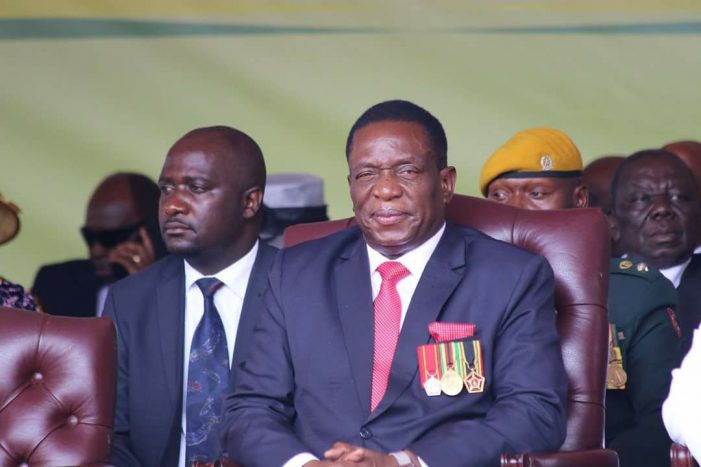By Gift Phiri
I have just finished reading an intriguing book by Steven Levitski, a well-known comparative political scientist. The 2002 book has given me very useful insights into Zimbabwe’s contemporary regime under President Emerson Mnangagwa.

Apparently, Zimbabwe is neither a modern democracy nor a full time authoritarian regime. Mnangagwa is running a hybrid regime called “competitive authoritarianism”, in which formal democratic institutions are widely viewed as the principal means of obtaining and exercising political authority but the incumbent violates those rules so often and to such an extent that the regime fails to meet conventional minimum standards for democracy.
In a competitive authoritarian regime, elections are staged when they are due without fail but are neither free nor fair. Opposition parties are given miniscule or adverse coverage on State media as compared to government parties. Under such regimes, opposition members are harassed through legal measures.
Although governments are changed through peaceful means, the State lacks all traits of a modern democratic regime. According to Levitski, regimes characterised by such abuses cannot be called democratic.
Looking at Zimbabwe’s case after the exit of long-ruling despot Robert Mugabe, it was widely believed that the country had entered into the phase of democratic rule.
Although Mnangagwa is projecting an image of a modern democratic regime, promising that any transition will come through an election set for July 30, but a critical analysis shows he is running a hybrid competitive authoritarian regime where elections are a ritual to deliver a predetermined outcome of regime retention and continuity.
Zimbabwe’s opposition has started a strong social movement to put pressure on the Mnangagwa government to run a fair vote.
During this period, Mnangagwa has made fine progress regarding preparation of the election through a biometric voter registration system.
More than 5 million voters were registered, with pictures of all the voters made compulsory on electoral lists but the voters’ roll distributed to his competitors devoid of the images. Opposition parties invited to the printing of ballot papers last weekend were given partial access to the process.
The Mnangagwa regime has proved to be masters of subterfuge to the international community, saying the right things and doing the opposite.
According to Levitski, in modern democratic countries, citizens have a constitutional right to assemble, demonstrate and criticise the government.
As far as civil liberties and political rights are concerned in Zimbabwe, during this era few incidents showed that we are still far behind modern democratic regimes, with the opposition recently allowed to stage a big protest against stonewalled electoral reforms in the capital, Harare unhindered.
There has been a much liberal regime under the Mnangagwa government, with the opposition allowed to campaign freely, but amid concomitant accusations of electoral rigging at an industrial scale.
In modern democracies, according to Levitski, political representatives have the real authority to govern. Throughout Zimbabwe’s political history, civil-military relations have remained problematic with the military in November planning a successful coup to dislodge a civilian government.
In Zimbabwe, the military and bureaucracy hold the real power while civilian leadership has been helpless to restrain them. Still, after the exit of Mugabe, there is probably going to be regime retention in the next election through the ongoing political skulduggery and electoral manipulation.
While there has been a sea change in civil liberties and political rights which seem to be guaranteed under the ED regime, with observers from 46 countries invited, civil-military relations are still not settled.
So, keeping in view Levitski’s scholarship, it is quite apparent that currently, Zimbabwe is a competitive authoritarian regime instead of a democracy. Daily News






